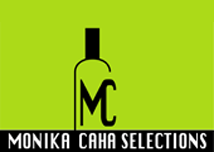|
|
Wine Region: Weststeiermark (West Styria)
Province: Steiermark (Styria)
Since 1989, Franz Strohmeier has been making the traditional Schilcher rosé with the Blauer Wildbacher grape. Beginning in 1990, he started experimenting, creating first a Schilcher red wine, and then his renowned Schilchersekt (sparkling wine). His philosophy was shifting away from his father’s, and in 1998 he left his family’s estate and together with his wife, opened his own winery. Since 2003 they have been cultivating the wines bio-dynamic methodes. In 2009 the first TLZ-wines (“Trauben, Liebe und Zeit” = “Grapes, Love and Time“) were produced on the basis of 2007 vintage.
They are wines without sulfur or any additions. The name already characterises all “ingredients” necessary for the wine production. It is the quality of growth in the vineyard, which forms these wines. The Schilcher sparkling-wines as well as sparkling wines of Weissburgunder and Sauvignon Blanc are also made in traditional bottle fermentation without additions and fermentation yeast.
Vineyard/Vinification method: Certified ORGANIC in Austria
Hectares/Acres: 11 /27
Varietals: Blauer Wildbacher, Weissburgunder, Sauvignon Blanc, Chardonnay, Zweigelt
Sweet: (1%) Blauer Wildbacher
The Schilcher: Schilcher is a wine about which a lot of stories have grown up, starting from a mistaken identity or blend with ungrafted wines, which is why it was also known as a “brutal drop“ or “hedge crasher“, to positive effects which are attributed to this wine, such as its aphrodisiac or tonic effect. Even today, there are many people who believe that Blauer Wildbacher is an ungrafted vine, and hence of American origin. Yet, there is no doubt about Wildbacher ranking among the oldest grape varieties cultivated in Central Europe, one of its parents being the medieval Heunischrebe, the other one being unknown. Pips from funerary objects found in hill graves of the Celts in West Styria are the oldest proof of the presence of this grape. The first written records mentioning Schilcher were, however, only found in 1580, in a wine book written by the Viennese Johann Rasch. Schilcher has retained a certain myth till today, which is probably to be attributed to its colour, on the one hand. On the other hand, there have always been balancing acts between Schilcher offering itself as an earthy, rustic wine and Schilcher winning fame by its superb quality. Thus, in 1938, Schilcher reached a ripeness of almost 24° Brix, and the legendary 1947 was even more mature. Single bottles of this rarity are still available for tastings and proof of the outstanding quality and longevity of Schilchers. Wine lovers and experts are amazed when tasting old Schilchers back to 1938…
www.strohmeier.at
|
Press:
Alice Feiring Blog 2011
NYTimesJune08
Info:
Wildbacher
About Weststyria
MAP:
Weststyria
|


